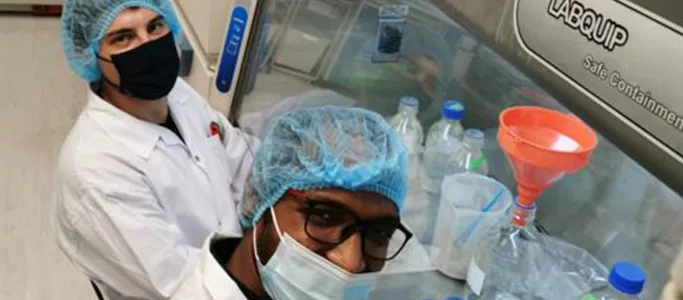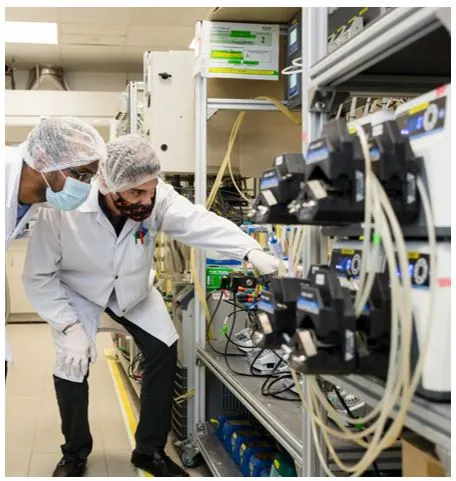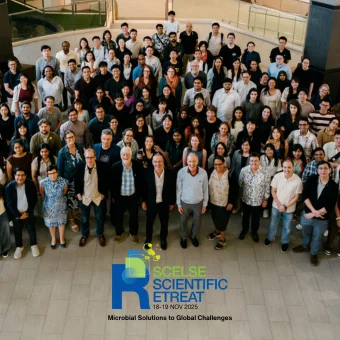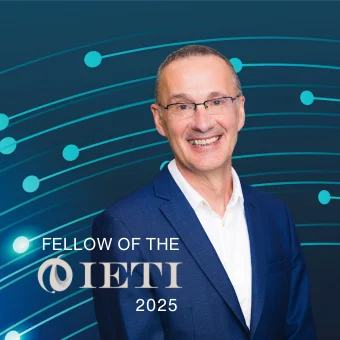Creating nutritious protein from soybean-processing wastewaters
We speak to SCELSE lead researcher Mr Vethathirri Ramanujam Srinivasan, SCELSE PhD student, to learn more.

Bioreactor bioconversion operation
- Featured
- 20 May 2022
The recycled food trend continues! A team of SCELSE researchers has presented a work titled, “Microbial protein production through mixedculture anaerobic/aerobic fermentation of soybean processing wastewaters of variable chemical and microbial composition” in Singapore International Water Week Convention on April 18, 2022.
1. In layman terms, what is your research about?
Our research aims to recycle food processing wastewater into food-grade microbial protein rich in essential amino acids. Microbial protein is made of dried microorganisms with a high protein content along with fats, carbohydrates, vitamins and minerals.
2. Why was your research chosen for SIWW among all the other research?
The current work is aligned with the Singapore Green Plan and “30 by 30” vision, whereby 30% of Singapore’s nutritional needs will be produced locally by 2030, up from less than 10% today. It can help in achieving Singapore’s goals of food security and sustainable management of water and sanitation.
3. What is the problem you’re trying to solve?
The main objective is to evaluate microbial protein production from soybean processing wastewaters by providing controlled bioconversion conditions to recycle nutrients using the microbial communities already present in these wastewaters.
4. What is the impact of your research?
This research demonstrates alternative sustainable protein production using food processing wastewater to address the food security of the ever-increasing world population. This would help alleviate the environmental impact caused by both traditional agricultural food production and wastewater treatment and disposal.
5. What is the takeaway message for your audience?
Food processing wastewater can be converted directly into microbial protein meeting the animal feed requirements through a mixed culture-based bioconversion approach.
6. Who did you collaborate with or hope to collaborate with, going forward?
The present work is part of the bioreactor work currently done at SCELSE, which in turn is part of the multi-institutional effort of our NRF Competitive Research Programme project titled “Recovery and microbial synthesis of high-value aquaculture feed additives from food-processing wastewater”. It involves collaboration with industrial partners, a multi-institutional team, and the Singapore Food Agency, to really harness Singapore’s potential for biotech innovation.






